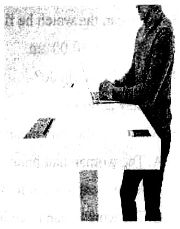题目内容
The National Gallery
Description:
The National Gallery is the British national art museum built on the north side of Trafalgar Square in London. It houses a diverse collection of more than 2,300 examples of European art ranging from 13th-century religious paintings to more modern ones by Renoir and Van Gogh. The older collections of the gallery are reached through the main entrance while the more modern works in the East Wing are most easily reached from Trafalgar Square by a ground floor entrance
Layout:
The modern Sainsbury Wing on the western side of the building houses 13th- to 15th-century paintings, and artists include Duccio, Uccello, Van Eyck, Lippi, Mantegna, Botticelli and Memling.
The main West Wing houses 16th-century paintings, and artists include Leonardo da Vinci, Cranach, Michelangelo, Raphael, Bruegel, Bronzino, Titan and Veronese.
The North Wing houses 17th-century paintings, and artists include Caravaggio, Rubens, Poussin, Van Dyck, Velazquez, Claude and Vermeer.
The East Wing houses 18th- to early 20th-century paintings, and artists include Canaletto, Goya, Turner, Constable, Renoir and Van Gogh.
Opening Hours:
The Gallery is open every day from 10am to 6pm (Fridays 10am to 9pm) and is free, but charges apply to some special exhibitions.
Getting There:
Nearest underground stations: Charing Cross (2-minute walk), Leicester Square (3-minute walk), Embankment (7-minute walk), and Piccadilly Circus (8-minute walk).
1. In which century’s collection can you see religious paintings?
A. The 13th. B. The 17th. C. The 18th. D. The 20th.
2. Where are Leonardo da Vinci’s works shown?
A. In the East Wing. B. In the main West Wing.
C. In the Sainsbury Wing. D. In the North Wing.
3.Which underground station is closest to the National Gallery?
A. Piccadilly Circus. B. Leicester Square.
C. Embankment. D. Charing Cross.
 名校课堂系列答案
名校课堂系列答案

 itics; I just wanted to go there.
itics; I just wanted to go there.